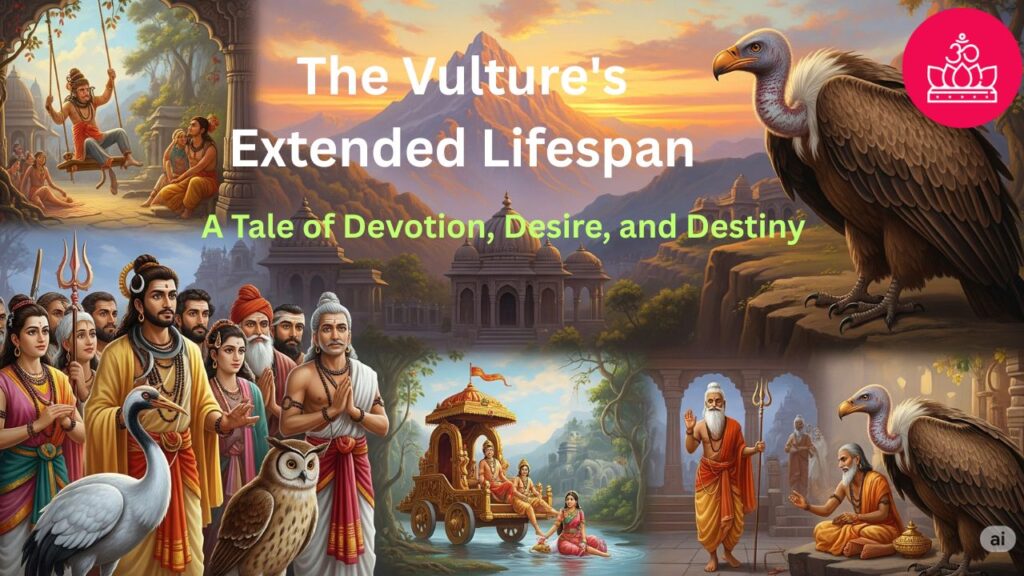The Unlikely Devotee: Candā’s Unexpected Path to Shiva’s Grace
As told in: *Skanda Purana – Kedara-khanda – Maheshvara-khanda – Chapter 33: The Greatness of Śivarātri Vrata*
This chapter unfolds a captivating narrative, a testament to the boundless grace of Shiva, revealing how even the most hardened sinner can find redemption through devotion, however unintentional. It emphasizes the power of *Śivarātri*, the fourteenth day of the dark fortnight in the month of Māgha (January-February), and the transformative potential of even seemingly insignificant acts performed with sincere, albeit unwitting, devotion. The story powerfully illustrates the core tenets of *dharma*, highlighting the importance of unwavering faith, the unexpected pathways to spiritual liberation, and the all-encompassing nature of divine mercy.
# The Wicked Forester and His Unintentional Worship
Our story begins with the introduction of Caṇḍa, a relentlessly cruel forester, a man whose life was a tapestry woven with violence and sin. He reveled in cruelty, mercilessly hunting animals, and even targeting Brahmins, the most revered members of society. His wife, Ghanodarī, was equally vicious, a thief who shared his disregard for ethical conduct. Their lives were a testament to *adharma*, the antithesis of righteous living.
One night, during the dark fortnight of Māgha, Caṇḍa, armed with his bow and arrow, sat vigil in a Bilva tree, patiently awaiting a wild boar. Unknowingly, he was about to embark on a journey of spiritual transformation. As he waited, inadvertently, he plucked and dropped numerous Bilva leaves, unknowingly showering them upon a Shiva Linga nestled at the base of the tree. The water he gargled, too, fell upon the sacred symbol. These seemingly insignificant actions, performed in ignorance, constituted an act of worship. This is a profound illustration of Shiva’s grace; even unintentional acts of devotion can bear fruit.
# The Waiting Wife and a Dog’s Intervention
Meanwhile, Ghanodarī, anxiously awaiting her husband’s return, grew increasingly worried as night deepened. Her imagination conjured up various gruesome scenarios, painting a vivid picture of her husband’s potential demise in the unforgiving wilderness. This section underscores the human element of the story, showcasing the wife’s anxiety and love, even amidst their shared wickedness. Her concern for her husband, her worry and fasting, adds a layer of depth to the tale.
The next morning, Ghanodarī, having fasted all day, ventured into the forest, carrying food for Caṇḍa. She found him by the river, already busy catching fish. She urged him to eat, chastising him for his neglect of his own well-being. But fate, or rather, divine intervention, had other plans. As Caṇḍa prepared to eat, a dog appeared and devoured the entire meal. This seemingly unfortunate event becomes a pivotal moment in the unfolding narrative.
# Transformation Through Unexpected Events
Ghanodarī’s anger flared at the dog’s act, but Caṇḍa, now subtly touched by the grace of Shiva, responded with unexpected wisdom. His words, filled with newfound understanding, marked a profound shift in his perspective. He spoke of the transience of the physical body, the futility of worldly attachments, and the importance of inner peace and discrimination. He had already unknowingly performed the *Śivarātri* fast and vigil, and now, his words reflect the enlightenment he has received. He had undergone a spiritual awakening, a transformation brought about by the unwitting act of worship and the subsequent loss of his meal.
# The Arrival of Shiva’s Ganās
As the Amāvāsyā, the new moon day, approached, Shiva’s Gaṇas, celestial beings, arrived in aerial chariots, their appearance described in vivid detail, emphasizing their divine splendor. They recognized Caṇḍa’s unintentional devotion and the significance of his actions during *Śivarātri*. This section highlights the immediacy of divine recognition and the swiftness of spiritual reward when genuine devotion is present, even if it is unintentional.
# The Revelation and Ascension
The Gaṇas explained to Caṇḍa the significance of his actions. The falling of the Bilva leaves, the unintentional ablutions, the unwitting vigil – all these combined to constitute a profound act of worship. This revelation underscores the all-encompassing nature of Shiva’s grace. It is not limited by intention or understanding but responds to the sincerity of the heart.
Caṇḍa, overwhelmed by the revelation, was taken to Gandhamādana, a celestial realm, amidst celestial music and celebration. His transformation from a cruel hunter to a devout follower of Shiva is complete. This section underscores the transformative power of *Śivarātri* and the potential for even the most wicked to find redemption through devotion.
# The Origin of Śivarātri Vrata and its Significance
The narrative then shifts to explain the origin and significance of the *Śivarātri* Vrata. It connects the observance to the cosmic cycle of time, emphasizing its ancient origins and its connection to the larger cosmological order. The chapter meticulously details the calculation of time, from the smallest unit of *lava* to the larger units of *pakṣa* (fortnight), *māsa* (month), and *vatsara* (year), underscoring the precision and importance of timing in religious observance.
The chapter then presents two further examples to illustrate the transformative power of *Śivarātri*. The first is a Brahmin widow who, through lust, bore a son with a Cāṇḍāla. This son, despite his wicked life, found redemption by merely staying awake in a Shiva temple on *Śivarātri*. The second example is Vicitravīrya, a king who, through dedicated devotion to Shiva, ultimately achieved liberation.
# Conclusion: The All-Encompassing Grace of Shiva
The chapter concludes by emphasizing the boundless nature of Shiva’s grace, highlighting how even unintentional acts of devotion can lead to salvation. The stories of Caṇḍa, the Brahmin widow’s son, and Vicitravīrya serve as powerful examples of this transformative power. The chapter underscores the significance of *Śivarātri*, its ability to cleanse sins, and its potential to lead even the most hardened sinners towards spiritual liberation. The narrative emphasizes that the path to Shiva is open to all, regardless of their past actions, reminding us of the all-encompassing nature of divine mercy and the transformative power of sincere, even unintentional, devotion.



